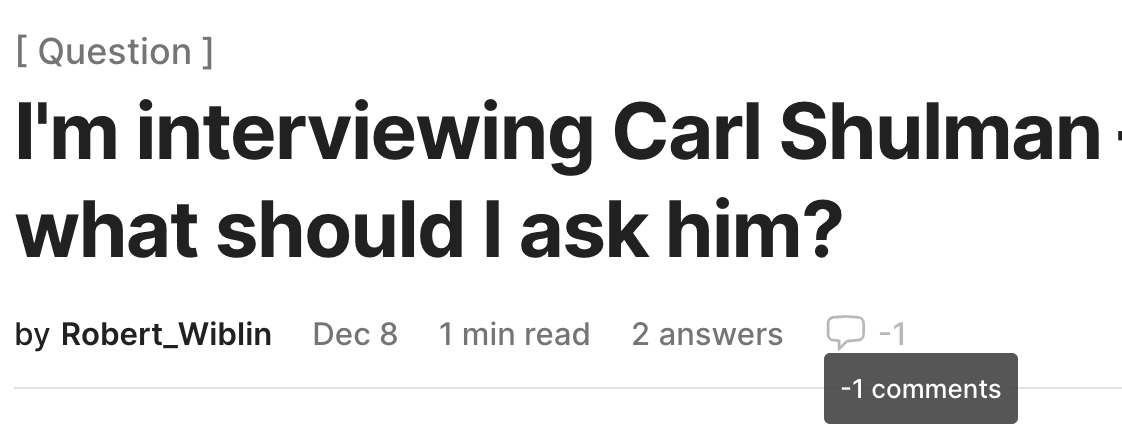Next week for the 80,000 Hours Podcast I'll be interviewing Carl Shulman, advisor to Open Philanthropy, and generally super informed person about history, technology, possible futures, and a shocking number of other topics.
He has previously appeared on our show and the Dwarkesh Podcast:
- Carl Shulman (Pt 1) - Intelligence Explosion, Primate Evolution, Robot Doublings, & Alignment
- Carl Shulman (Pt 2) - AI Takeover, Bio & Cyber Attacks, Detecting Deception, & Humanity's Far Future
- Carl Shulman on the common-sense case for existential risk work and its practical implications
He has also written a number of pieces on this forum.
What should I ask him?


Related question: How does one become someone like Carl Shulman (or Wei Dai, for that matter)?
I thought about this and wrote down some life events/decisions that probably contributed to becoming who I am today.
- Immigrating to the US at age 10 knowing no English. Social skills deteriorated while learning language, which along with lack of cultural knowledge made it hard to make friends during teenage and college years, which gave me a lot of free time that I filled by reading fiction and non-fiction, programming, and developing intellectual interests.
- Was heavily indoctrinated with Communist propaganda while in China, but leaving meant I then had no viable moral/philosophical/political foundations. Parents were too busy building careers as new immigrants and didn't try to teach me values/traditions. So I had a lot of questions that I didn't have ready answers to, which perhaps contributed to my intense interest in philosophy (ETA: and economics and game theory).
- Had an initial career in cryptography, but found it a struggle to compete with other researchers on purely math/technical skills. Realized that my comparative advantage was in more conceptual work. Crypto also taught me to be skeptical of my own and other people's ideas.
- Had a bad initial experience with academic re
... (read more)